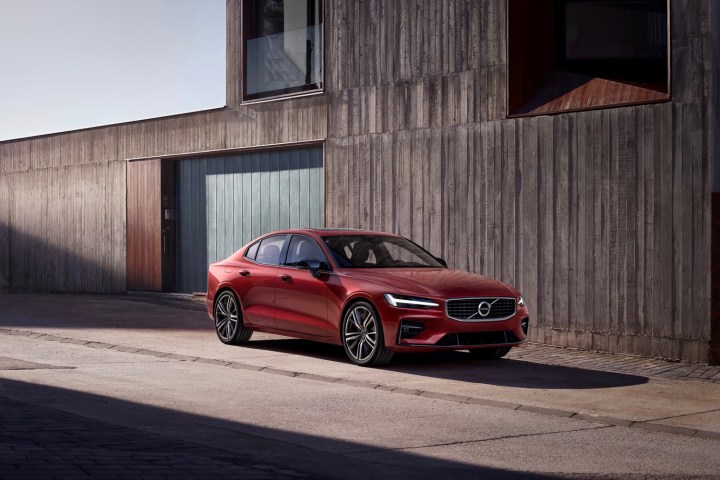
Volvo has a reputation for being fanatical about safety, but this takes things to a whole new level.
The Swedish automaker will impose a 180 kph (112 mph) speed limit on every car it makes beginning in 2020. Manufacturers frequently use electronics to limit the top speed of cars (many German luxury cars have electronic limiters, for example). But Volvo is the first to limit speeds specifically to improve safety.
The new policy is an outgrowth of Volvo’s Vision 2020 initiative, which set the goal that no one would be killed or seriously injured in a new Volvo by 2020. Volvo set out to achieve that goal with technology, adding more elaborate safety features and driver aids to its cars. But the company now believes technology alone can’t do the job, so it’s focusing on driver behavior.
“Because of our research we know where the problem areas are when it comes to ending serious injuries and fatalities in our cars,” Volvo CEO Håkan Samuelsson said in a statement. “And while a speed limitation is not a cure-all, it’s worth doing if we can save even one life.”
Speeding remains a major safety issue, yet many drivers ignore posted speed limits, Volvo noted. That’s something most drivers can probably confirm from real-world experience. Data from the National Highway Traffic Safety Administration shows that 25 percent of all traffic fatalities in the United States in 2017 were caused by speeding, according to Volvo. Above certain speeds, safety technology is no longer enough to prevent serious injuries or fatalities, Volvo added.
The case for lower speeds is fairly robust, then. While speeding is commonplace, it’s also unlikely that most U.S. drivers are regularly exceeding 112 mph. But does that mean a car company has the right to tell drivers what they can and can’t do?
Volvo thinks it does. The company doesn’t plan on stopping at speed limiters. It’s also looking into using geofencing to automatically limit speeds around schools and hospitals.
“We want to start a conversation about whether car makers have the right or maybe even an obligation to install technology in cars that changes their drivers’ behavior, to tackle things like speeding, intoxication, or distraction,” Samuelsson said. “We don’t have a firm answer to this question, but believe we should take leadership in the discussion and be a pioneer.”
In addition to speeding, Volvo identified driving under the influence of alcohol or drugs and distracted driving as the other two biggest automotive safety problems. The automaker did not suggest any technological solutions to those problems. Self-driving cars, something Volvo is also working on, could render the issue of unsafe human drivers irrelevant. But it will likely be some time before autonomous cars completely replace human drivers — if that happens at all.
Editors' Recommendations
- Starting under $40K, Volvo’s compact EX30 will be its most affordable EV, and its fastest
- Uber app adds safety feature to let you report a problem from the car
- The Bloodhound Land Speed Car saw its paint peel off in a 600-plus-mph test run
- Bask in the green glow of the XC40 Recharge, Volvo’s first electric car
- Google’s new Personal Safety app will detect car crashes and call 911 for you


